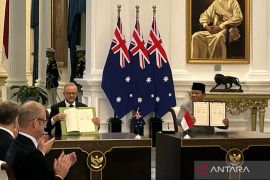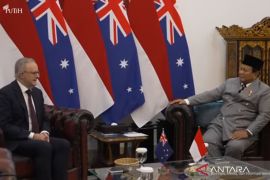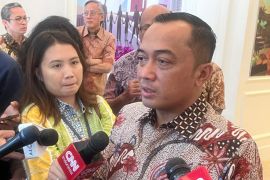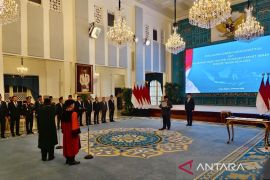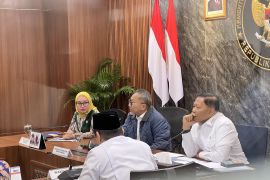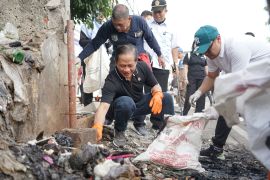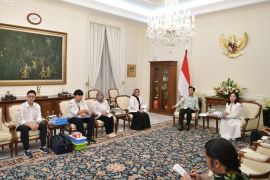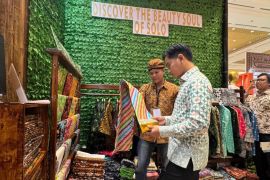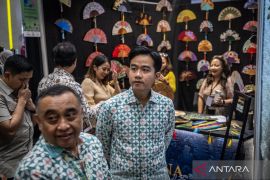"We have teak wood forests (that can be developed), later perhaps by PTP (state-owned plantation company), and also oil palm plantations, that have so far been unproductive," he said while visiting corn plantations developed in Perhutanis teak wood forest in Randublatung in the district of Blora, Central Java, on Saturday.
He said that by applying this method, the production of corn, soybeans and rice could increase.
In addition to increasing production, the application of the poly-culture system, which involves people living around forests or plantations managed by a state-owned company people, would also provide an additional source of income for the residents of that area and improve their welfare, he pointed out.
Besides inspecting corn plantations developed using a poly-culture system on 11.1 hectares of teak wood forests, President Joko Widodo also inspected rice field development using the poly-culture system in a teak wood forest that has been carried out under cooperation between Perhutani and State Gajahmada University in the same area.
During the visit, President Joko Widodo was accompanied by Central Java Governor Ganjar Pranowo, Forestry and Environment Minister Siti Nurbaya, Agriculture Minister Amran Sulaiman and Minister/State Secretary Pratikno.
President Jokowi is on a three-day working visit to East Java and Central Java from Friday to Sunday, and is accompanied by First Lady Iriana.
The head of the state also attended a grand harvest ceremony at the Dukuh Jetis village in Ponorogo, East Java, on Friday, where he distributed aid to the local farmers.
Ponorogo is one of the districts in East Java that will enter this years rice harvest season.
The government is seeking to achieve self-sufficiency in rice, corn and soybean in three years time.(*)
Editor: Heru Purwanto
Copyright © ANTARA 2015

